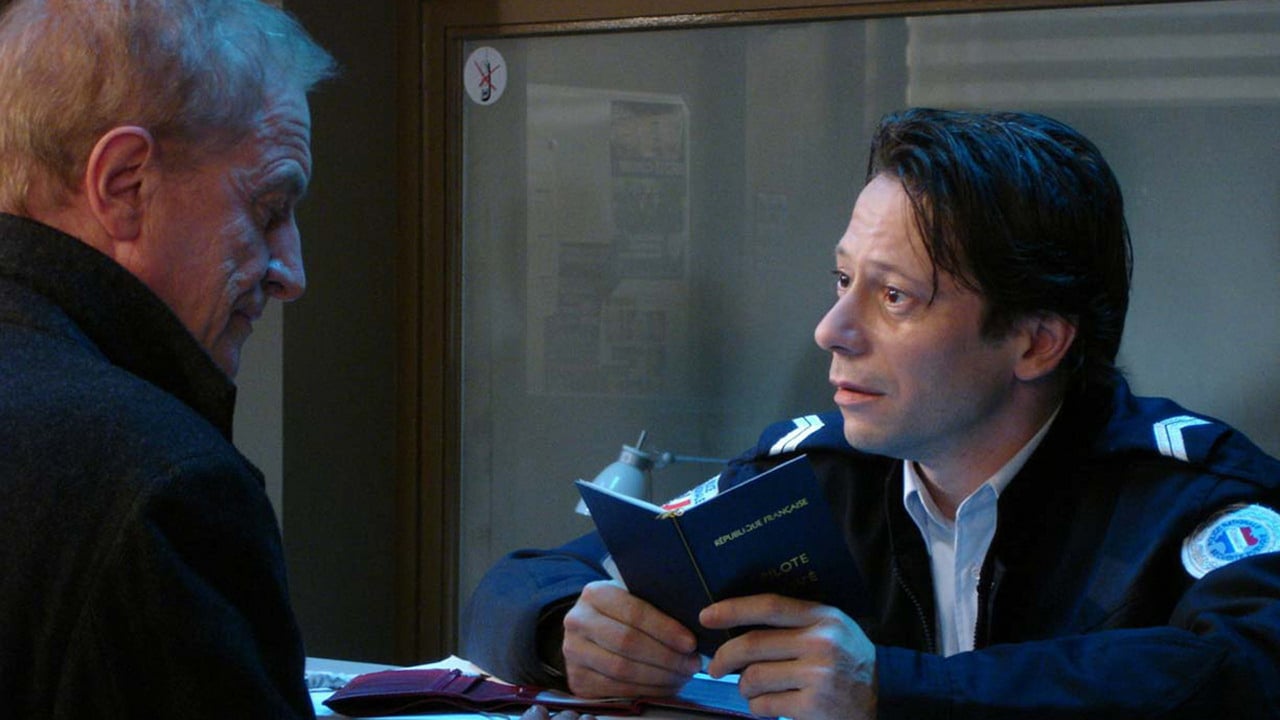



Intense, gripping, stylish and poignant
Good idea lost in the noise
brilliant actors, brilliant editing
This is a gorgeous movie made by a gorgeous spirit.
View MoreWhat an insult to sit through this movie of a stalker's wet dream, about a sexist old creepy man whose prey inexplicably throws herself at him, as does her beautiful best friend, while he is married to a gorgeous woman decades younger than he! Many reviewers have mentioned the sheer absurdity of being married for 30 years to a wife that looks to be 40, as well as this said wife happily inviting the unlikely paramours of her creepy psychotic husband into her house, and he, looking like death warmed-over, enters as if he was Elvis Presley, groupies in tow. We are either to believe this absurdity, or say "this is not real". Which brings most artsy-fartsy reviewers to conclude that, hey, this must be psychological and not real, because otherwise it's too stupid--and so we are supposed to accept the absurd and surreality of it all. But when you make a film that purports to tell a story, and you just shuffle the characters around in some symbolic way, randomly, intending to make some psychological, symbolic points, that's just a muddled vision, not even trying to communicate with the viewer or touch them in any way; it's not a vision of clarity, wit, absurdity, or real symbolism. You can tell the pretentious movie reviewers who also don't understand this film because:a)they spend a lot of time discussing the director, Flaubert, and external literary theory b) they do not attempt to make any interpretation of the film, which would be welcomed by the rest of us who "just didn't get it" c) they gush over the beautiful cinematography (which wasn't all that)I don't care if Resnais is a legend (I vaguely remember seeing Last Year at Marienbad back in art school); I found this film to be just a dreadful, nonsensical (and sexist) excrescence.
View MoreLast Year at Marienbad is one of my all-time favorite films. I like Hiroshima, Mon Amour, too, but find it less compelling (I know others would disagree with me). I am no stranger to anti-realist, surrealist, and experimental film. I thought it would be interesting to see a recent Resnais film that was actually available at Redbox! I was wrong. Wild Grass is neither amusing nor interesting. It is tedious, ridiculous, and nonsensical (and not in a good way). It "hints" at many aspects of the main character's past and personality, playfully suggesting he was a convicted murderer or rapist who has served his time. In addition to that, he acts in completely contradictory ways, is usually irrational and petulant, and is lecherous, dumb, and abusive to women. He slashes the woman's tires and she eventually finds this kind of behavior irresistible? He sexually assaults her business partner/friend in the latter's car, and the friend enjoys it? Can you say "misogyny"? And we're supposed to believe this beautiful young woman is his wife? I kept thinking: I must have gotten it wrong; this must be his daughter who is, for some reason, pretending to be his wife. A colossal casting error this alone. Maybe she was identified toward the beginning of the film as his daughter, but I couldn't bring myself to care enough to go back and re-watch the beginning. The main characters seem to have a lot of money, suggesting some level of responsibility (the woman, after all, is a dentist), but they act worse than teenagers, and even more irrationally and self-destructively. I felt compelled to see how it would end, but was, predictably, annoyed with myself for having wasted so much of my time. This is a very stupid film and I would not recommend it to anyone. And one reviewer here gave us the "key" to the film: the dentist represents Death! Wow. As if Ingmar Bergman never existed? If I have to read the film metaphorically in that way, then it depends entirely on a secret "key" that 99 percent of viewers will not get. I could think of nothing more pretentious than that. No thanks.
View MoreI came to IMDb seeking solace after wasting several hours of my life on this film, which got a three-out-of-four-star rating by my satellite provider and sounded interesting. I typically enjoy foreign and independent films.I'm not sure why I stuck it through to the end ... maybe because it seemed like something would happen to make sense of the idiotic plot line, or at least help me understand something about the nauseatingly unlikeable characters! Needless to say, that didn't happen Glad I checked out the reviews here afterward, which gave me a good laugh. I enjoyed hearing others say they wanted not only their money - but their time - back after wasting it on this film.By the way, someone wrote that this premiered at the same festival as The White Ribbon. Watch that instead. It's also cryptic, but beautifully done, and you'll be on the edge of your seat for the entire film ... instead of wondering when to cut your losses and make your escape!
View MoreThe great master of the French cinema, Alain Resnais, has produced this bizarre, brilliantly made and intensely surrealist 'crazy masterpiece'. It is based upon a novel entitled 'l'Incident' ('The Incident') with which I am unfamiliar, so it is difficult to know how much of this film originated from the febrile brain of Resnais himself. The story and its treatment carry on the long-standing French traditions of two literary movements: surrealism and 'unanisme'. The surrealist input is immediately obvious, because the story itself, although realistically portrayed, is inherently entirely surrealist. It begins with an 'incident', namely the theft of a purse from a woman who has been shopping in the Palais Royale in Paris. For several minutes we do not even see her face, but only the back of her head, and her face only appears for the first time floating in a bath. It was André Breton's famous surrealist novel 'Nadja' which focused the minds of the entire French intelligentsia upon the importance of chance events which lead to chains of further complications and create a whole alternative future to that which might have been. (Kieslowski and other film directors have exploited this motif in numerous films.) This story commences in just such a way. And then further chance events ensue, such as the man finding the stolen purse and becoming obsessed with the woman who owned it, especially because she has a pilot's licence in the purse and he is obsessed by airplanes and female solo pilots. The influence of 'unanisme' on this story is shown by the intense portrayals of only tiny portions of the backgrounds, stories, and motives of the characters, with the emphasis being given to them acting as a group, and we the viewers being left to imagine the rest. In other words, exposition is below the minimum, and we never do learn what is wrong with all these crazy people, and it is their interrelations which dominate. These techniques were above all pioneered and demonstrated by the French novelist Jules Romains, who founded the literary movement known as 'unanisme'. Having read 27 novels by Romains, I have more than a passing familiarity with his work. It has been more influential than people tend to realize. It must be kept firmly in mind that this Resnais film contains a great deal of gnomic humour and sly jokes. It is not meant to be taken any more seriously than life itself. Some of the references are incomprehensible, as they are doubtless meant to be: why do we keep seeing the camera moving over swaying wild grass in a field? Why do we see so many pavement cracks with tufts of wild grass growing out of them? We shall never know. Many of the shots, editing, compositions, angles, and moods are so outstanding that we can see clearly that Resnais has lost none of his genius in his long career. As always, much in this film is never meant to be explained, but is only suggested, and we can make of it what we will. All of the leading characters are eventually shown to be seriously mentally unbalanced, and I take this as Resnais's view of humanity generally. And who can say he is wrong? There is a lot to be said for the theory that everybody is insane. That would then explain everything about the world. In fact, the only sane person in this film seems to be the little girl who asks about the cat munchies. And we do not even know who she is. This film is funny, sad, shocking, upsetting, provocative, thoughtful, disturbing, incomprehensible, deeply meaningful, irrational, profound, and many other things besides, but why use up all the adjectives when there is a compulsively fascinating movie to watch instead.
View More